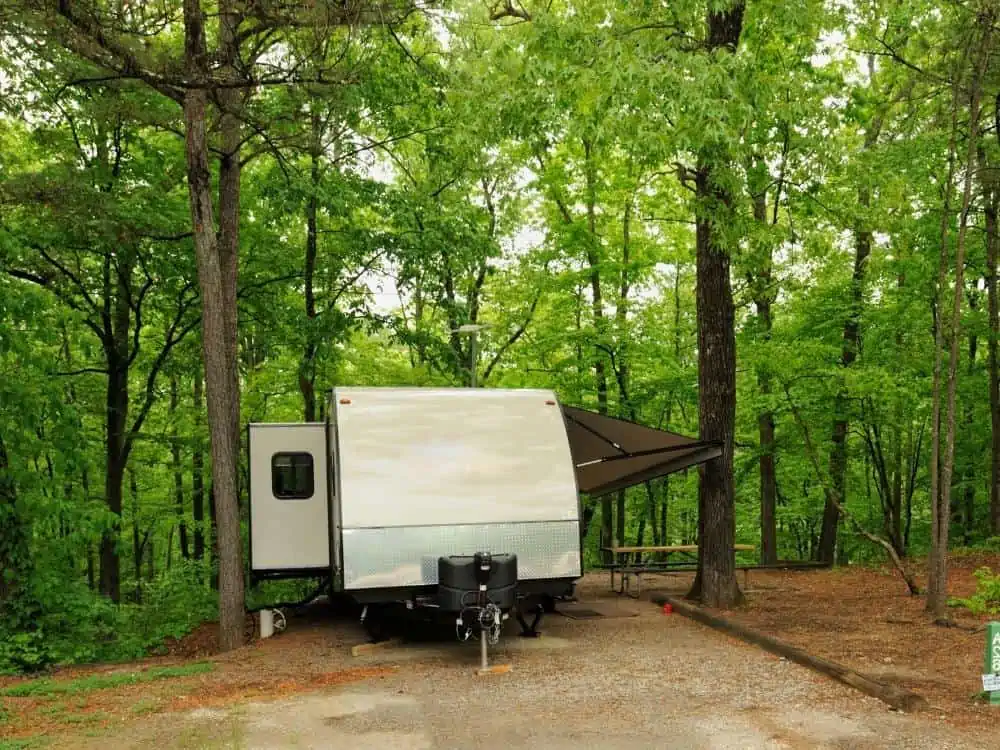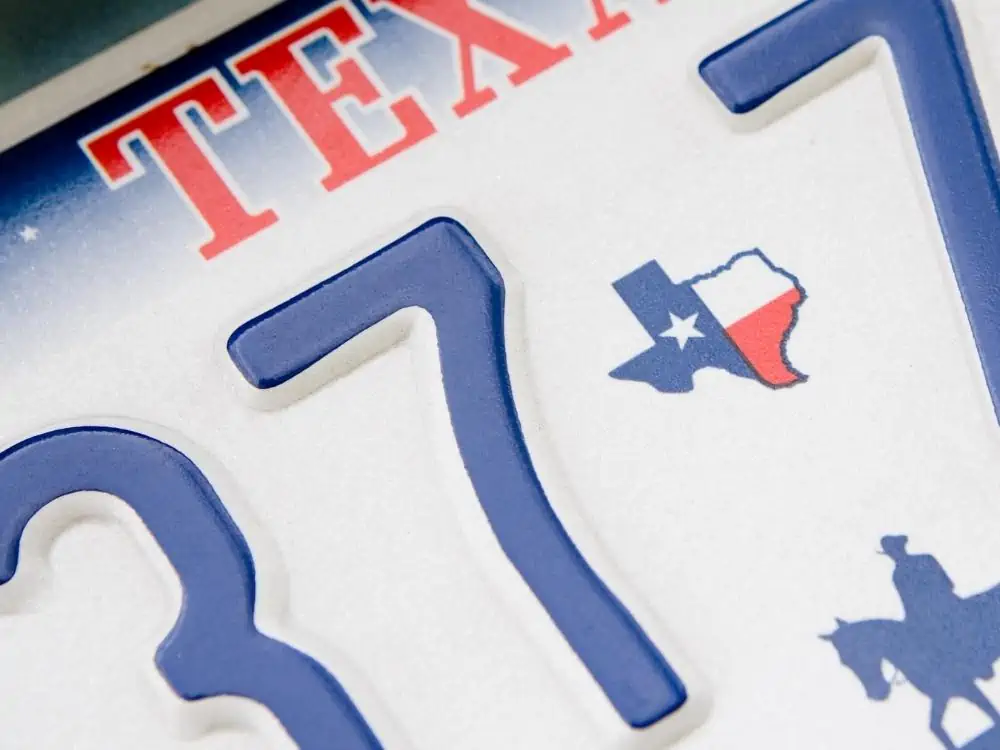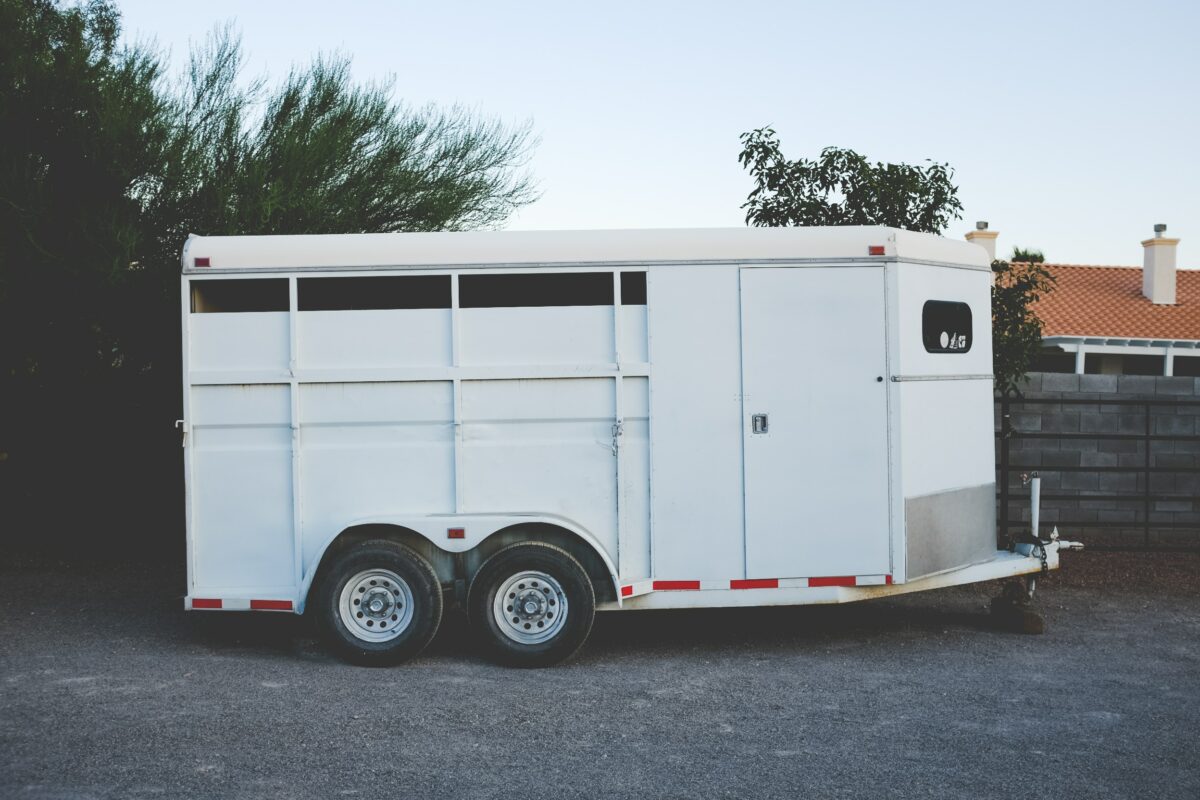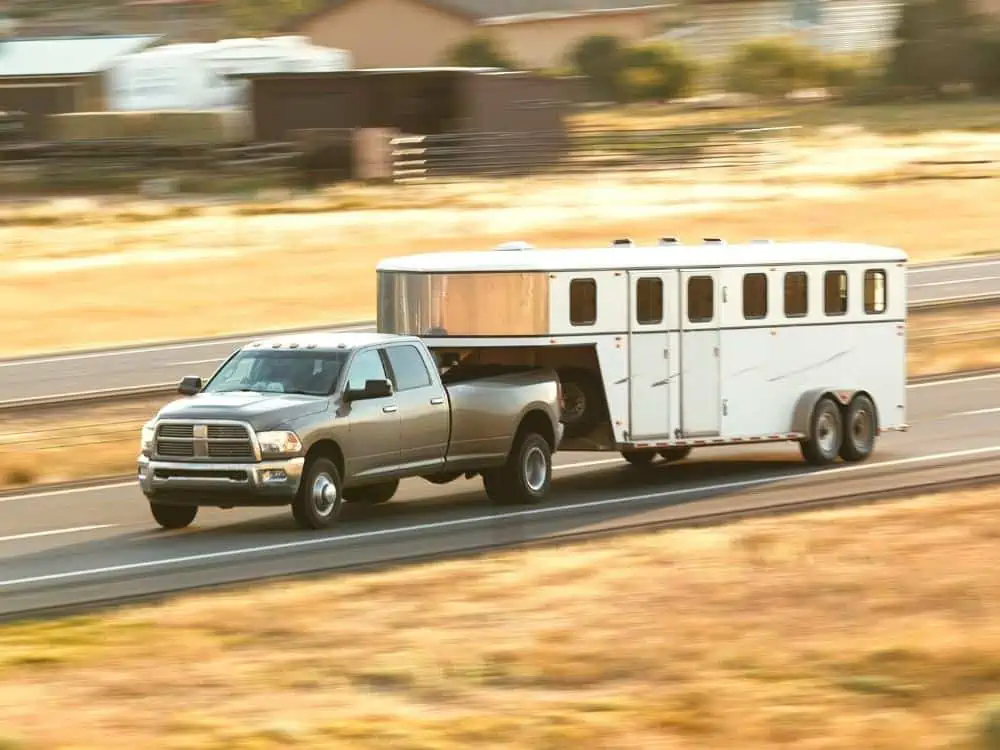Share the post "Register a Trailer With/Without a Title in Texas "
Vehicle registration. We all wish we didn’t have to do it, but few of us could live without it. Vehicle registration can be complicated, and things only worsen when discussing trailers. Then, when we consider that each state has its own rules regarding trailer registration, we might feel like giving up entirely.
But it doesn’t need to be hopelessly complicated. With some information about your trailer, we will register a trailer in Texas for all types.
Key Points:
- Trailers used for commercial purposes may require additional regulations, such as weight and inspection requirements.
- The cost of registering a trailer in Texas varies based on factors such as weight and county.
- Titling requirements for trailers in Texas depend on the type of trailer, such as manufactured or assembled.
- To transfer ownership of a trailer, both the buyer and seller must complete specific steps and provide necessary documentation.
- Failure to register a trailer in Texas can result in penalties, fines, and legal consequences.

- When Do You Need to Register Your Trailer?
- Requirements for Trailers Used for Commercial Purposes
- Fee for registering a trailer in Texas
- Do You Need a Title to Register Your Trailer?
- How to Register and Title Your Trailer in Texas
- The renewal process for trailer registration in Texas
- Transfer Ownership of a Trailer
- Penalties for failure to register a trailer in Texas
- Selling a Trailer in Texas
- Next Steps
When Do You Need to Register Your Trailer?
A ‘trailer’ is any unit carrying cargo or passengers towed behind a motorized vehicle. This includes things like campers, semi-trailers, and utility trailers.
Trailer registration is surprisingly straightforward in Texas. Registration is required for all non-farm trailers operating on public roads, including manufactured and assembled trailers.
Farm Trailer Registration
What is a ‘farm trailer,’ you ask? A farm trailer requires a special license to qualify as a farm trailer. These trailers can only transport certain types of cargo, such as agricultural products and livestock.
In exchange, these trailers are generally exempt from state inspection requirements. And if one of these trailers weighs less than 4,000 pounds while at capacity, it does not have to be registered.

Registering a trailer in the state of Texas involves a set of documentation and procedural requirements. The Texas Department of Motor Vehicles (TxDMV) mainly overseen the registration process. Below is a comprehensive list of required documents and steps that should be followed for trailer registration:
Required Documents
- Proof of Ownership: A title is commonly used to establish ownership. A Manufacturer’s Certificate of Origin (MCO) will be needed if the trailer is new.
- Identification: A valid photo ID, typically a driver’s license, is required for the person registering the trailer.
- Application for Texas Title and/or Registration (Form 130-U): This form is essential for all vehicle registrations and transfers. It must be completed and signed.
- Weight Certificate: Trailers that have never been registered or titled in the state must be weighed by a certified Automated Vehicle Identification System (AVIS) provider.
- Proof of Insurance: Although trailers might not need insurance, the towing vehicle must have at least the minimum required insurance coverage. Some insurance providers may cover trailers under the towing vehicle’s policy.
- Vehicle Inspection Report (VIR): A safety inspection may be necessary depending on the type and use of the trailer.
- Bill of Sale: Although optional, a bill of sale can help verify ownership and the purchase price, which could be necessary for tax calculations.
- Fees: Payment for applicable fees, which can include title fees, registration fees, and local county fees.
Steps for Registration
- Preparation: Gather all required documents and complete any necessary forms.
- Vehicle Inspection: If required, inspect the trailer at an authorized station.
- Application Submission: Visit your local county tax office with all the required documents and fees. Some offices may allow online or mail-in registration for renewals or specific cases.
- Receive Documentation: Once approved, you will receive your license plates and registration stickers. Attach these to your trailer as directed by the TxDMV.
Please note that the requirements may vary based on the type and usage of the trailer, such as whether it’s for personal or commercial use. Always consult the latest regulations from the TxDMV or your local county tax office for the most current information.

Requirements for Trailers Used for Commercial Purposes
In Texas, trailers used for commercial purposes are subject to additional regulations and requirements that go beyond those for personal use. These regulations are in place to ensure the safety and efficiency of commercial operations, and various state and federal agencies enforce them. Here are some of the key considerations:
Weight Regulations
- Commercial trailers that exceed a gross vehicle weight of 26,001 pounds or more may require the towing vehicle operator to have a Commercial Driver’s License (CDL).
Inspection Requirements
- Annual Inspection: Commercial trailers must undergo an annual safety inspection. Some trailers may also require a more specialized inspection depending on the type of goods they carry (e.g., hazardous materials).
- Federal Motor Carrier Safety Regulations (FMCSRs): Trailers that are part of interstate commerce are subject to federal safety regulations, which include regular inspections and specific safety equipment requirements.
Registration and Titling
- USDOT Number: Trailers involved in interstate commerce may require a USDOT number, issued by the Federal Motor Carrier Safety Administration (FMCSA).
- TxDMV Number: Within Texas, some commercial trailers may require a TxDMV number, especially if they are larger or transporting certain types of goods.
- Commercial Registration: These trailers often require a different type of registration that may have different fee structures and documentation requirements.
Insurance Requirements
- Commercial trailers typically need to have more extensive insurance coverage, often including higher liability limits and additional types of coverage like cargo insurance, depending on what is being transported.
Special Permits
- Certain types of cargo or trailer configurations may require special permits. For example, oversize or overweight trailers may need a special permit from the Texas Department of Motor Vehicles (TxDMV).
Record-Keeping
- Logs and Documentation: More stringent record-keeping is often required for commercial trailers, including logs related to service hours, maintenance records, and inspection records.
- IFTA Decals: If you are operating your commercial trailer across state lines, you may need decals and permits related to the International Fuel Tax Agreement (IFTA).
Safety Equipment
- Requirements for safety equipment may be more rigorous, including the mandatory installation of specific types of lights, reflectors, and other visibility-related devices.
Failing to adhere to these additional regulations and requirements can result in substantial fines, penalties, and even legal action. For the most accurate and up-to-date information, consult the Texas Department of Motor Vehicles (TxDMV), the Federal Motor Carrier Safety Administration (FMCSA), and your local county tax office. These agencies will provide guidelines specific to your trailer and its intended use.

Fee for registering a trailer in Texas
The cost of registering a trailer in Texas can vary widely depending on several factors, including the type of trailer, its weight, and the county in which you are registering it. However, to give you a general idea:
Base Registration Fees
Most of the cost comes from the base registration fee, primarily determined by the trailer’s weight. As of my last update in January 2022:
- Trailers up to 6,000 pounds gross weight: $45.00
- Trailers over 6,000 pounds gross weight: $54.00
Other Fees and Taxes
- Title Fee: Approximately $28.00 to $33.00, but can vary by county.
- Local County Fees: vary from county to county and can range from $1.00 to $11.50.
- Sales Tax: 6.25% of the purchase price (or fair market value if the trailer is used).
- Processing and Handling Fee: Around $4.75 as of my last update.
- Vehicle Inspection Fee: Varies based on inspection station if required.
Additional Charges
- Late fees: Can range from $5 to $25 if you renew your registration late.
- Transfer Fee: If you’re transferring ownership, a fee may apply, typically around $2.50.
All of these fees are subject to change, and additional county-specific fees or taxes may not be included in this general estimate.
For the most accurate and up-to-date information, it’s best to consult your local county tax office or the Texas Department of Motor Vehicles (TxDMV). Some counties also offer an online fee calculator on their websites to help you estimate the total cost.
Do You Need a Title to Register Your Trailer?
Now that we’ve covered registration, it’s time to return to that original question: “Do you need a title to register a trailer?” A title, sometimes called a ‘pink slip,’ is a legal document certifying that you are a vehicle’s owner.
You can think of it as the deed to your vehicle. It prevents vehicle theft and has many legal applications, such as when you put up your car as collateral for a loan.
Note that a title differs from vehicle registration, which certifies that your vehicle can operate on public roads.
What Kind of Trailer Do You Have?
Whether you need a title depends on the type of trailer you have. Texas has three general categories of trailers, each with rules and regulations.
Manufactured trailers are trailers made by a manufacturing company. Assembled trailers are made at home or created from discrete components. Finally, there are farm trailers, which have already been discussed above.
Check the trailer tongue if you have recently bought a trailer and aren’t sure what category it falls into. A manufactured trailer will most likely have the manufacturer’s name printed there.
If the trailer has a license plate, it could also provide a clue as to the trailer type, as farm trailers have unique plates designating them as such. Contact an auto-theft law enforcement officer for help if you are still unsure.

Manufactured Trailers
Titling for manufactured trailers is based on gross weight (the trailer’s weight plus its carrying capacity). If the weight is 4,000 pounds or less, titling is optional.
Titling is a requirement, however, if the gross weight is over 4,000 pounds. Your trailer must also pass an annual safety inspection if the gross weight exceeds 4,500 pounds.
Assembled Trailers
Regardless of gross weight, all newly assembled trailers must have a title and registration. If a trailer already has a non-titled record or has been registered out of state, it does not need to be titled. Like manufactured trailers, assembled trailers with a gross weight of more than 4,500 pounds require an annual inspection.
Farm Trailers
If you have a farm trailer license, you do not need to title your trailer unless its gross weight exceeds 34,000 pounds. Otherwise, titling is optional. Uniquely, farm trailers have no requirements concerning safety inspections.
If a farm trailer does exceed 34,000 pounds in gross weight, it no longer qualifies for a farm trailer license plate and will be treated as a manufactured or assembled trailer.

How to Register and Title Your Trailer in Texas
Applications for titling and registration are submitted to your county tax assessor-collector office. The exact steps required vary depending on the type of trailer. Contact your local tax office or DMV for more in-depth information about the process.
Manufactured Trailers
When trying to title or register a manufactured trailer, you will need to provide the following items:
- A completed Application for Texas Title and or Registration (Form 130-U)
- Any applicable fees
- Evidence of ownership
- Weight certificate (possibly)
- Image of the trailer (possibly)
The ‘evidence of ownership’ you must provide depends on the details of the trailer in question. You must bring the Manufacturer’s Certificate of Origin (MCO) if it is a new trailer. Bring a bill of sale and registration receipt if the trailer is used but has a gross weight of 4,000 pounds or less.
If the trailer is used and has a gross weight exceeding 4,000 pounds, you must bring the trailer’s title.

Assembled Trailers
The process for assembling trailers is similar to that of manufactured trailers. You must bring a completed 130-U Form, applicable fees, and evidence of ownership. The only significant difference is that an MCO is not required if the trailer is newly built. Instead, you must bring a completed Trailer Verification Statement of Fact (Form VTR-141).
Additionally, newly assembled trailers must have a Vehicle Identification Number (VIN). You can obtain one after an inspection by an auto theft law enforcement officer.
Farm Trailers
Manufactured farm trailers follow the procedure for manufactured trailers, just as assembled farm trailers follow the process for made trailers. However, if you intend to get a farm license, you must also submit an Application for Farm License Plates (Form VTR-52-A).
The renewal process for trailer registration in Texas
Renewing a trailer registration in Texas involves a series of steps designed to verify the trailer’s compliance with state laws and to update any information changes. The Texas Department of Motor Vehicles (TxDMV) oversees the renewal process, but much of the registration work is conducted at the county level. Below is an outline of the typical procedures and requirements for renewing your trailer’s registration in Texas.
Required Documents and Information
- Renewal Notice: You will usually receive a renewal notice in the mail from the TxDMV or your county tax office before your registration expires. This notice will list what you need to complete the renewal.
- Identification: Valid photo ID, such as a driver’s license.
- Proof of Insurance: For the towing vehicle, not the trailer itself.
- Vehicle Inspection Report (VIR): Your trailer must pass a safety inspection at an approved station if required.
- Payment: The required fees include the base registration and county-specific fees.
Renewal Methods
- Online: If you’ve received a renewal notice and your trailer has passed any necessary inspections, you may be eligible to renew online through the TxDMV or your county’s websites. You must enter your trailer’s identification information and pay the fees using a credit card.
- By Mail: You can send the completed renewal form, payment, and any required documentation to the address listed on your renewal notice.
- In-Person: You can renew your registration at your local county tax office. Bring all the required documents and payment for the renewal fees.
Steps to Renew
- Check Renewal Notice: Read your renewal notice carefully to determine what requirements and fees apply to your trailer.
- Get Inspected: If required, inspect your trailer at an authorized station. The station will electronically submit your VIR to the state database.
- Gather Documentation: Assemble all necessary documents, including your renewal notice and proof of insurance.
- Choose Renewal Method: Decide whether you want to renew online, by mail, or in person, and complete the associated steps for your chosen method.
- Make Payment: Pay the required fees via your chosen renewal method.
- Receive Updated Documentation: After your renewal is processed, you will receive a new registration sticker and/or documentation confirming your current trailer registration.
Additional Points to Consider
- Renewing your registration late may result in late fees.
- If you have moved since your last registration or renewal, you must update your address with the TxDMV, which may also be done during renewal.
For current information, consult your renewal notice, the TxDMV, or the local county tax office. This will help ensure you fulfill all requirements and pay the correct fees.

Transfer Ownership of a Trailer
Transferring ownership and registration of a trailer in Texas involves several specific steps and required documentation to ensure the transfer is legal and complete. Both the buyer and the seller have responsibilities during this process. Here is a detailed overview of what you need to do to transfer trailer ownership and registration in Texas:
Responsibilities of the Seller
- Provide a Signed Title: The seller should provide the buyer with the existing title, signed to release ownership. Ensure all details like the odometer reading (if applicable), sale price, and date of sale are accurately filled in.
- Bill of Sale: While not mandatory, a bill of sale is often advisable. It should include the trailer’s make, model, and VIN, the sale price, the buyer and seller’s names, and the transaction date.
- Notification of Sale: The seller must notify the Texas Department of Motor Vehicles (TxDMV) of the sale. This is usually done online through the TxDMV website or by submitting Form VTR-346.
- Remove License Plates: Texas law requires you to remove your license plates, including trailers when selling your vehicle.
Responsibilities of the Buyer
- Inspection and VIN Check: Inspect the trailer and check its VIN to ensure it matches the one on the title and other documentation. Conducting a VIN check can also confirm no liens on the trailer.
- Payment and Receipt: Pay the agreed-upon price and obtain a bill of sale and the signed title from the seller.
- Apply for New Title: Complete the Application for Texas Title and/or Registration (Form 130-U). This form will require details about the trailer, sale, and buyer/seller information.
- Proof of Insurance: Provide proof of insurance for the towing vehicle, as the trailer typically does not need to be insured separately.
- Taxes and Fees: Pay all necessary fees, including the title fee, registration fee, and sales tax, at the time of title and registration application. Sales tax is generally 6.25% of the purchase price.
- Submission: Submit all documentation and the appropriate fees to your local county tax office. Some counties may have additional requirements or fees.
- Receive New Title and Registration: Once all documentation is verified and fees are paid, the county tax office will issue a new title in your name and a new registration sticker for the trailer.
Additional Points
- Time Limit: The buyer typically has 30 days from the date of purchase to transfer the title and registration.
- Late Fees: Failure to transfer ownership within the specified time frame may result in late fees.
Always consult the most up-to-date guidelines from the TxDMV or your local county tax office to ensure compliance with all rules and requirements for your specific situation.

Penalties for failure to register a trailer in Texas
Failure to register a trailer in Texas can result in penalties and legal consequences. Non-compliance can leave you vulnerable to various forms of reprimand, ranging from fines to legal action. Below are the common penalties associated with not registering a trailer:
Financial Penalties
- Late Registration Penalty: You’ll be charged a late fee if you renew your trailer registration late. The price starts at $5 for the first month and increases based on how long the registration has expired.
- Citation and Fines: Operating an unregistered trailer on public roads violates Texas law. If caught, you could receive a source, and the fines can be substantial, often starting at $200 or more, depending on the jurisdiction and circumstances.
Legal Consequences
- Misdemeanor Charges: Operating an unregistered vehicle, which includes trailers, is considered a Class C misdemeanor in Texas. This could lead to a court summons.
- Impoundment: In some cases, law enforcement may impound the unregistered trailer until all legal matters are settled, which will also entail additional fees for towing and storage.
Insurance Implications
- Voided Coverage: Your insurance may not cover accidents involving an unregistered trailer, potentially resulting in substantial out-of-pocket expenses.
Additional Hassles
- Administrative Burden: You must undergo the complete registration process from the beginning, including inspections, documentation, and fees, which could have been avoided with timely renewal.
- Legal Records: Failure to register could result in a mark against your driving record, affecting future insurance premiums and employment opportunities and requiring a clean record.
Re-registration
- Once you’re cited for having an unregistered trailer, you’ll generally need to go through the standard registration process, including paying all regular fees and any penalties, before you can legally operate the trailer again.
Failure to register your trailer puts you at risk of these penalties and puts you in a precarious legal situation that could result in much higher costs than simply paying the registration fees.
Therefore, it’s advisable to adhere to the registration and renewal schedules specified by the Texas Department of Motor Vehicles (TxDMV) and your local county tax office to avoid these consequences.
Selling a Trailer in Texas
Selling a trailer in Texas involves several legal and administrative steps to ensure that the transaction is valid and compliant with state laws. Below are the steps you should follow:
Prepare the Trailer for Sale:
- Clean and Inspect: Make sure the trailer is in good condition to attract buyers.
- Repairs: Perform any necessary maintenance or repairs.
- Documentation: Gather all documentation, including the trailer’s title, registration, and any maintenance records.
Advertise:
- Listing: Publish the trailer’s details on appropriate platforms, such as classified ads, online marketplaces, and trailer sales websites.
- Photos and Description: Include clear photographs and a detailed description.
Legal Requirements:
- Bill of Sale: Both parties should fill out and sign a Bill of Sale, which should include the sale price, date, and information on both buyer and seller.
- Odometer Disclosure: If your trailer has an odometer, Texas law requires disclosure of the mileage at the time of sale.
- Form 130-U: Complete the Application for Texas Title and/or Registration (Form 130-U). Both the buyer and the seller must sign this form.
Transfer the Title:
- Signature: The seller must sign and date the title in the presence of a notary public.
- Assign Title: The title should then be assigned to the buyer.
- Release of Liability: Inform the Texas Department of Motor Vehicles (DMV) that you have sold the trailer by submitting a Vehicle Transfer Notification within 30 days of the sale.
Finalize the Sale:
- Payment: Accept only secure forms of payment like a cashier’s check or money order.
- Submit Documents: The buyer must submit the signed title, Bill of Sale, and Form 130-U to the Texas DMV to complete the title transfer process.
- Remove Plates: Remove the license plate from the trailer before the new owner takes possession.
Additional Steps:
- Notify Insurance: Once the sale is finalized, inform your insurance company to remove the trailer from your policy.
- Keep Copies: Always keep copies of all transaction documents for your records.
By following these steps, you can ensure a smooth and legally compliant sale process for your trailer in Texas.
Next Steps
If you’re looking for more information on registering a trailer in Texas or need to take the next steps, here are some useful links:
- Texas Department of Motor Vehicles (TxDMV) – Trailer Registration: This official government website provides detailed information on trailer registration requirements, forms, fees, and other resources. Visit their website here: TxDMV Trailer Registration
- Application for Texas Title and/or Registration (Form 130-U): This is the form you’ll need to complete for trailer registration. You can download the form from the TxDMV website here: Form 130-U
- Texas County Tax Assessor-Collector Offices: Each county in Texas has its own tax office where you can submit your trailer registration documents and fees. Use the TxDMV’s county tax office locator to find the nearest office to you: County Tax Office Locator
- Texas Laws and Regulations for Trailers: Familiarize yourself with the specific laws and regulations governing trailer registration in Texas. The TxDMV website provides comprehensive information on weight requirements, inspections, insurance, and more: Texas Laws and Regulations for Trailers
- Renewing Trailer Registration in Texas: If you need to renew your trailer registration, the TxDMV website provides step-by-step instructions and information on fees and renewal methods. Visit their website here: Renewing Trailer Registration
- Selling a Trailer in Texas: If you’re selling a trailer in Texas, the TxDMV provides guidance on the necessary paperwork, transferring the title, and notifying the DMV of the sale. Find more information here: Selling a Trailer in Texas
Remember to consult the official resources provided by the Texas Department of Motor Vehicles (TxDMV) and your local county tax office for the most accurate and up-to-date information.
Share the post "Register a Trailer With/Without a Title in Texas "
Christian Linden is a seasoned writer and contributor at Texas View, specializing in topics that resonate with the Texan community. With over a decade of experience in journalism, Christian brings a wealth of knowledge in local politics, culture, and lifestyle. He holds a Bachelor's degree in Communications from the University of Texas. When he's not writing, Christian enjoys spending weekends traveling across Texas with his family, exploring everything from bustling cities to serene landscapes.











